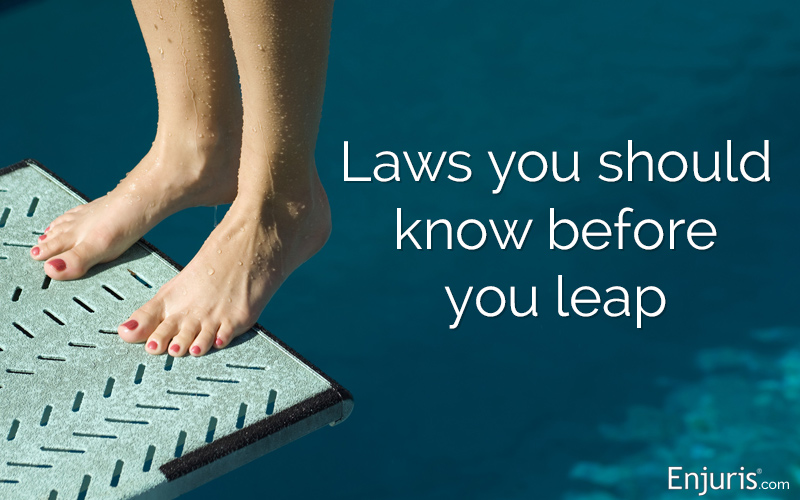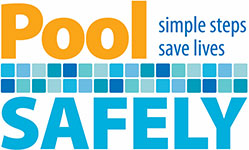
Learn about the laws impacting swimming pool accidents in the Palmetto State
An estimated 7.4 million swimming pools and 5 million hot tubs are actively used in the United States.
Many of these swimming pools are located in South Carolina, which shouldn’t come as a surprise to South Carolinians who experience an average summer temperature near 90 degrees.
Unfortunately, South Carolina has 1 of the highest drowning rates among children in the country.
In this article, we’ll take a look at swimming pool accidents, including who’s liable when someone drowns in a residential or public pool.
Swimming pool accident statistics
According to the Centers for Disease Control and Prevention (CDC), more than 3,500 people die annually as a result of unintentional drownings (non-boating related).
Children under the age of 15 are particularly at risk for both fatal and non-fatal swimming pool injuries:
| Swimming pool drowning fatalities in the U.S. by age | ||
|---|---|---|
| Year | Younger than 5 years of age | 5-14 years of age |
| 2015 | 263 | 88 |
| 2016 | 290 | 100 |
| 2017 | 303 | 91 |
| Source: United States Consumer Product Safety Commission | ||
| Swimming pool injuries treated in emergency rooms in the U.S. by age | ||
|---|---|---|
| Year | Younger than 5 years of age | 5-14 years of age |
| 2017 | 5,300 | 2,000 |
| 2018 | 4,900 | 1,500 |
| 2019 | 5,300 | 2,000 |
| Source: United States Consumer Product Safety Commission | ||
Common causes of swimming pool accidents
According to the CDC, the main factors that lead to swimming pool drowning accidents include:
- Lack of swimming ability
- Lack of barriers
- Lack of close supervision
- Failure to wear life jackets
- Alcohol use
- Seizure disorders
Most fatal swimming pool drowning accidents in South Carolina occur at the victim’s home and are the result of a lack of supervision.
| Percentage of drowning fatalities in South Carolina by location (2015-2017) | |||
|---|---|---|---|
| Location | Younger than 5 years of age | 5-9 years of age | 5-14 years of age |
| Home | 52% | 24% | 11% |
| Friend | 23% | 6% | 7% |
| Neighbor | 7% | 11% | 4% |
| Public pool | 11% | 46% | 56% |
| Undisclosed location | 7% | 14% | 23% |
| Source: United States Consumer Product Safety Commission | |||
When can a residential pool owner be held liable for a swimming pool accident in South Carolina?
In South Carolina, residential pool owners have a duty to make sure their pools are safe for visitors. The extent of the owner’s duty depends on the classification of the visitor.
| Classification | Definition | Duty |
|---|---|---|
| Invitee | An individual who is invited or permitted to enter the premises for the benefit of the owner (for example, a pool cleaner) | The duty owed to an invitee is to use reasonable care to locate and fix (or provide a warning about) any dangerous conditions. |
| Licensee | An individual who is on the premises with permission from the owner for their own benefit (for example, a child visiting a neighbor’s pool) | The duty owed to a licensee is to use reasonable care to warn the licensee about any concealed dangerous conditions or activities which are known to the possessor. |
| Adult trespasser | An adult who is on the premises without permission from the owner | Generally, a property owner owes no care to adult trespassers except not to inflict willful or wanton injury (hurt them purposefully). |
| Child trespasser | A child who is on the premises without permission from the owner | Because a swimming pool is “attractive” to a child, the property owner must take reasonable steps to see that the pool is guarded so that the child will not be injured in coming into contact with it. This is called the attractive nuisance doctrine. |
Most counties in South Carolina have adopted the International Swimming Pool and Spa Code (ISPSC). The ISPSC is a model code that regulates the minimum requirements for the design, construction, alteration, repair, and maintenance of swimming pools, spas, and hot tubs.
Let’s look at an example:
ISPSC 305.2.1
Outdoor pools and spas and indoor swimming pools must be surrounded by a barrier at least 48 inches above grade.
If you own a swimming pool or plan to construct a swimming pool, it’s crucial that you get in touch with your county representatives to make sure you know what regulations govern your swimming pool. If someone is injured using your pool as a result of your failure to follow the ISPSC adopted by your county, you may be held liable.
When can a public pool owner be held liable for a swimming pool accident in South Carolina?
Just like owners of residential pools, public pool owners can be held liable for negligence if a swimmer is injured because the owner failed to meet the appropriate standard of care.
South Carolina laws governing public swimming pools can be found in the South Carolina Code of State Regulations Section 61-51. The laws govern everything from design requirements to accident reporting requirements.
Let’s look at an example:
South Carolina Code of State Regulations Section 61-51.J.11
One or more lifeguards must be on duty during operational hours at “Type A” and “Type E” pools.
- “Type A” means any pool open to the general public that does not require a membership.
- “Type E” means those pools at water parks, such as water flumes, water slides, lazy rivers, wave parks, inner tube rides, kiddie play parks, etc. “Type E” also means pools at subdivisions that have a slide that is in use, or not able to be secured to prevent access when not in use.
Swimming pool accident damages
In South Carolina swimming pool cases, plaintiffs can recover 3 types of damages:
- Economic damages include the monetary losses caused by the accident (medical expenses, lost wages, property damage)
- Non-economic damages include the non-monetary losses caused by the accident (pain and suffering, emotional distress, loss of consortium)
- Punitive damages are meant to punish the defendant and are only available in cases where the defendant acted willfully or recklessly
How does insurance impact swimming pool accidents?
The liability protection provided by most home insurance policies covers pool-related accidents. This includes any medical expenses or lawsuits that result from pool-related injury or death. As a result, pool owners should consider increasing their liability protection to at least $300,000 or $500,000.
Swimming pool safety tips
The South Carolina Department of Insurance lists the following pool safety tips for pool owners and swimmers:
- To eliminate unsupervised entrance to the swimming or spa area, install a fence with self-closing gates or another barrier on all sides of the pool.
- Install alarms on doors leading to the pool area to prevent children from wandering into the pool unsupervised.
- Post emergency numbers on the home phone nearest the pool, in the event of an accident.
- Keep a copy and a first aid kit, ring buoys, and “reaching” poles near the pool.
- Know how to shut off filters and other devices and clearly post this information so others can do so in case of an emergency.
- Learn—and have your family members learn—basic water rescue skills, including first aid and CPR training.
- Get your children swimming lessons as early as possible. Having a backyard pool makes this a vital and important safety skill.
- Never leave children unsupervised.
- Block children from pool filters and other mechanical devices, as the suction force may injure them or prevent them from surfacing.
- Don’t leave toys or floats in the pool when not in use—they may prove to be a deadly temptation for toddlers who might then fall into the pool while trying to reach them.
- Pay attention to the weather. Excessive heat can cause dizziness, which can be dangerous around a pool.
- If you have a diving board, post the depth and the rules nearby and keep the diving area clear. Never allow diving into an above-ground pool.
- Check regularly for potential hazards around the pool.
- Limit alcohol use around the water.
Ready to talk to a personal injury lawyer about your swimming pool accident? You can find one using our free online legal directory.
Pool Safely is a national public education campaign from the U.S. Consumer Product Safety Commission (CPSC). Learn more about how Enjuris and Pool Safely help make water play and summer fun safer for families!
See our guide Choosing a personal injury attorney.

